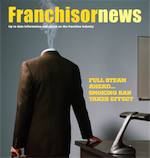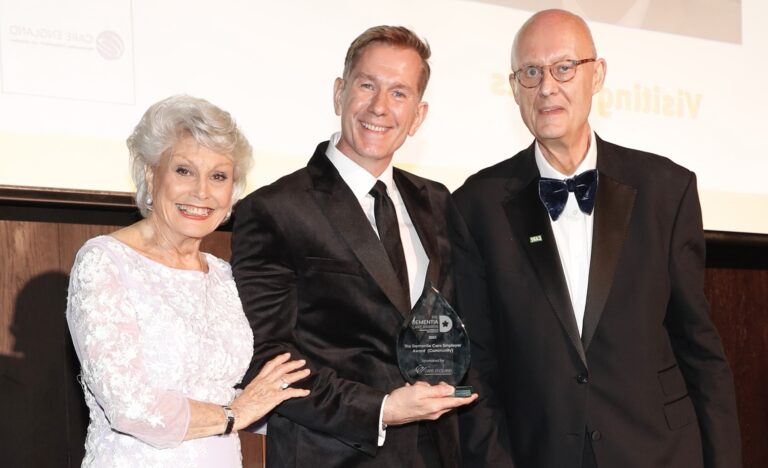Mel Will Fix It
Mel’ll fix it!
Ex-chairman of the bfa, a current bfa board member and the driving force behind one of the franchise industry’s biggest success stories. When it comes to business, Melvin Lusty seems to have the Midas touch. Vicki Cunningham quizzed Melvin on the secrets behind his success and life after Rainbow.
How did you get into franchising?
My brother decided to buy the franchise for ServiceMaster, but he ended up making a total mess of it. He wrote his van off in the first few months so I would get home in the evening with the car and go cleaning with my brother. My brother had borrowed my father’s redundancy money to buy ServiceMaster but he ended walking away from it. I wasn’t happy at work so I decided to give up my company car, private health and pension and take over the Service Master franchise from my brother. The main reason I got into that business was purely because I wanted to pay my dad back. My dad worked his nuts off – and died at 58. He had the same job for 29 years as well as 3 part-time jobs. It’s only as time passed that I understand the importance of the way franchising works.
Tell me about Rainbow International
Before Rainbow I was a franchisee with ServiceMaster for 10 years and then I went to work for Rainbow. I started in the April and in the November I ended up buying the master licence. I paid a whole quid for it! It was a mess – they’d had it for three years and lost £1.8m on it. In the seven months up to me buying it they’d lost £700,000. All I brought to the party was £100,000 and we never went to the bank. When I bought Rainbow the network turnover was £350,000 and when I sold it was nearly £40m. I could never have envisaged it being the size it has become. This year the turnover may well be over £70m. The decision to buy was wonderful with hindsight, but at the time – stupid! It was a huge gamble. The numbers just did not add up.
What major change did you implement at Rainbow International to turn it around?
Implementing disaster restoration and trying to teach the guys to be businessmen were the main things I did. They’d had very little business training so for 12 months I cut our overheads down to nothing and just trained and trained. The focus for me always has been and will always be on helping the franchisees build a successful business – a profitable business. If they’re earning well they don’t begrudge paying me my fees.
What made you decide to sell Rainbow?
The market place we were in was changing. By then we were working on disaster restoration and insurance companies were handing out larger and larger contracts and we were getting more and more of this work. There were a couple of independent companies who had wealthy backers and I knew they wanted to make more of an in-road into the UK market. At a board meeting, before the offer letter came in, we discussed that we could probably do with a partner to help protect us a bit. Within a few weeks we got a letter saying ‘are you interested in selling your business?’ and so the timing was absolutely perfect. I’ve always built the business so it’s saleable, and I got a lot of money for it – many millions of pounds. But it was off the back of building a business that wasn’t built around me. That’s the philosophy I have and that’s how I teach franchisees to build their business. I built a business that didn’t depend on me.
What attracted you to Chemex?
It’s a nice, well-established business. We had an inkling that the owners wanted to sell and it was an industry that I know well. I’ve also known Les Grey [Chemex’s founder] a long time so I understood how Chemex worked and understood some of the complications behind it. It’s a sleeping giant really and it’s our job to try and wake it up and move it forward. It’s a strong brand and well respected in the franchise industry and having looked at it we decided we could do something with it.
You sold Rainbow International for a substantial amount of money. Why not just retire?
I love franchising. I’ve never done it for the money, which may seem like a stupid thing to say but I really haven’t. The reward comes out of watching a person join you, then grow and evolve, get the lifestyle that they’ve dreamt of – and then ultimately sell it and move on to something else. I’ve got two partners at Chemex – I’ve always said I wouldn’t have partners – so the challenge for me this time is to work with partners, be one of three, help guide them and help this business grow.
How has it been going since you bought it?
It’s good – we’ve started to see some nice growth. There has been a massive change in the last three to four months. We made the decision to outsource the storage of the chemicals and the logistics part of the business. Unfortunately this meant, for the first time in my life, I had to make some people redundant. It wasn’t very nice, but the intention is to grow the business so in theory we should replace them. It will just be with people of a different skill set.

So what’s the big plan for Chemex now?
Training and re-training. The franchisees have never had much training – I’ve always looked at being a franchisor and the businesses I’ve run as training organisations. You bring people in and give them a week or two weeks training and it’s not enough. If you’re teaching someone to deliver a service or product and to become businessmen, you can’t do that in a couple of weeks.
It can sometimes be a tricky relationship between franchisees and franchisors, how do you deal with that?
It is a tricky relationship. It always will be when you get entrepreneurial type businesses – invariably you’re going to have a strong personality at the front and you’ll find that a lot in the franchise world. The job of the franchisor is to listen to the franchisees and subsequently make decisions. If a franchisee had their way they’d say we don’t want to pay the franchisor any money and then the franchisor doesn’t exist and they cannot be franchisees!
Have you ever had a situation with a difficult franchise?
No – but as a dictator it has never been a problem! But seriously you have to treat each case differently. As a franchisor our job is to try and foresee problems that may occur and try and read between the lines. Try and gather information from within your organisation. Speak to everyone – you need to have your finger on the pulse. I’ve never had any legal problems and I try to pre-empt things. At the end of the day the franchisor is going nowhere – there is only one person that’s going to leave the system and that’s the franchisee.
What advice would you give to new franchisors?
Get some franchising experience on board as soon as possible onto your management team. I brought people of 55 – 58 years old into my management team when they were struggling to get jobs, but for me they were a wealth of experience and knowledge. That said be careful as well not to completely surround yourself with franchising experts otherwise you can get tunnel vision. You do need to keep bringing in outside blood all the time.
How do you maintain a work life balance?
It is probably fair to say I have never had a work-life balance, my body is probably an example of that! I was always focused on building the business – family unfortunately came second a lot of the time. Since selling up I’ve concentrated on getting a bit more time for me. My lad plays rugby and cricket and I’ve got a bunch of friends around that now – watching a game and a couple of beers after – it keeps an old man very happy. My balance has always been bad and I’m a wonderful model of what you shouldn’t do. I’m trying to correct it now – I‘m trying before it’s too late.
Melvin Lusty
There’s no doubting that Melvin is driven and daring, spotting potentially lucrative business opportunities that others with less foresight would shun.
While some would say that he has been lucky, the truth is that his success has been down to sheer hard work and dogged determination. Melvin is the personification of the true spirit of franchising – building profitable businesses through a solid, long-term commitment to staff and franchisees alike. As such, it seems likely his latest venture – Chemex – has a very rosy future.



